
Find Help
More Items From Ergsy search
-

What are the different types of pregnancy tests?
Relevance: 100%
-

What is a pregnancy test?
Relevance: 88%
-

How soon can a pregnancy test detect pregnancy?
Relevance: 81%
-

How does a pregnancy test work?
Relevance: 80%
-
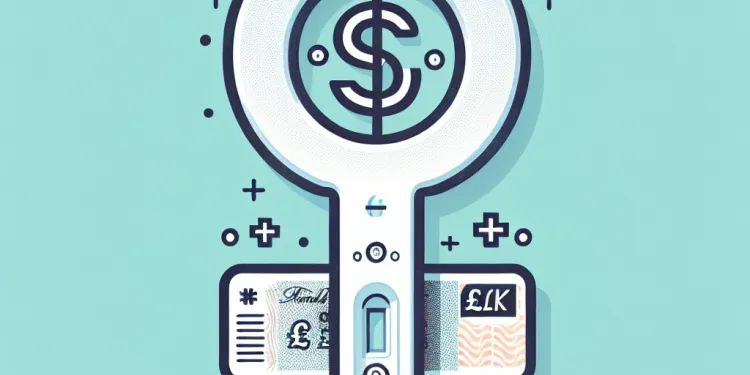
Can a pregnancy test expire?
Relevance: 79%
-

Are digital pregnancy tests more accurate than non-digital tests?
Relevance: 77%
-

What if my pregnancy test is positive?
Relevance: 77%
-
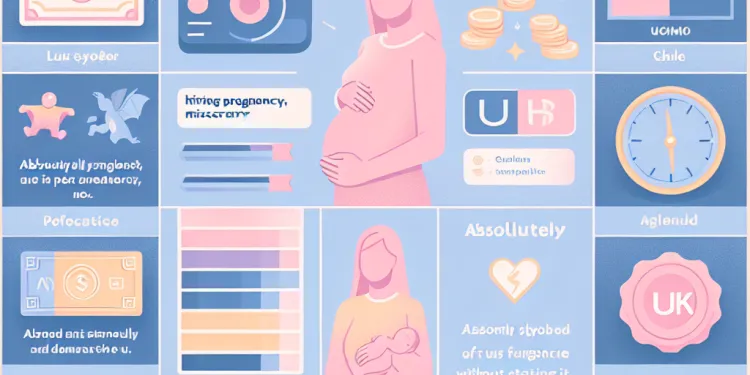
Can a pregnancy test detect a miscarriage?
Relevance: 75%
-

When should I take a pregnancy test?
Relevance: 74%
-

Can medications affect pregnancy test results?
Relevance: 72%
-

What can cause a false positive pregnancy test?
Relevance: 72%
-

Can stress affect a pregnancy test result?
Relevance: 71%
-

What does an evaporation line mean on a pregnancy test?
Relevance: 71%
-

Do all pregnancy tests detect the same levels of hCG?
Relevance: 69%
-

What if my pregnancy test is negative and I still think I'm pregnant?
Relevance: 69%
-
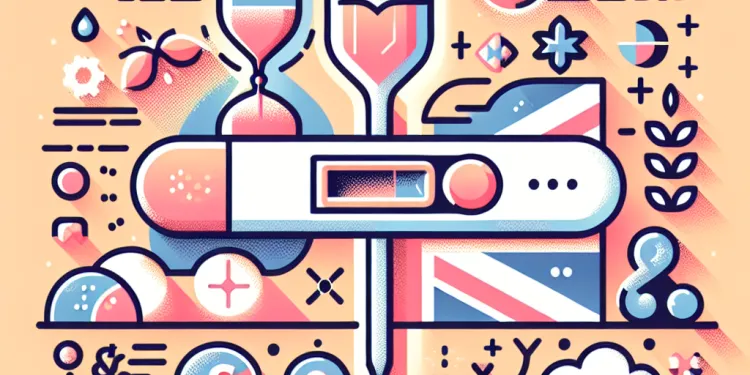
What should I do if I get unclear results on a pregnancy test?
Relevance: 67%
-

How long should I wait to read the results of a pregnancy test?
Relevance: 67%
-

Can drinking a lot of water affect pregnancy test results?
Relevance: 67%
-

How accurate are home pregnancy tests?
Relevance: 60%
-

How accurate are the tests for predicting type 1 diabetes?
Relevance: 55%
-

HIV and pregnancy | NHS
Relevance: 54%
-

Gestational Diabetes during pregnancy
Relevance: 53%
-
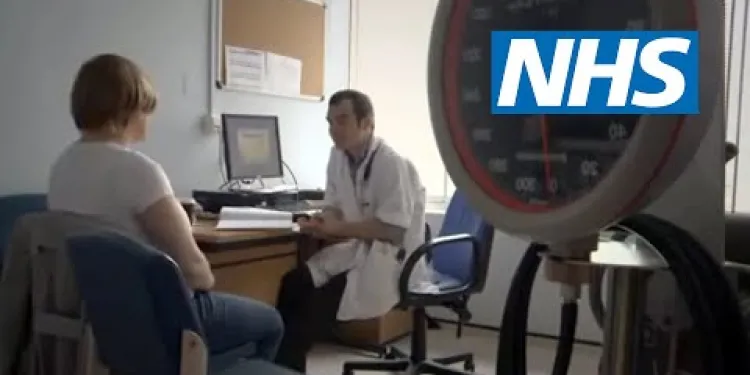
What should I do if I start bleeding during early pregnancy? | NHS
Relevance: 49%
-

Do morning urine tests give more accurate results?
Relevance: 48%
-

How often should I exercise during pregnancy?
Relevance: 47%
-
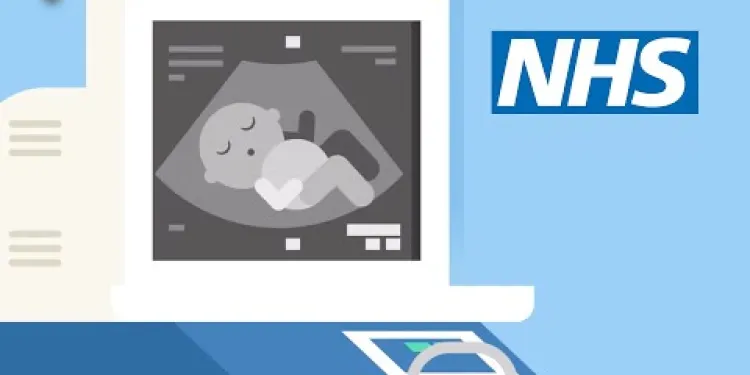
Screening tests for you and your baby | NHS
Relevance: 46%
-

Will the test affect my menstrual cycle?
Relevance: 46%
-

How can I ensure safety during pregnancy exercises?
Relevance: 46%
-

Can Zika virus affect pregnancy?
Relevance: 45%
-

What exercises can I do during pregnancy?
Relevance: 45%
-

Are there any exercises to avoid during pregnancy?
Relevance: 45%
-

Do I need to consult a doctor before exercising during pregnancy?
Relevance: 45%
-

Is cycling safe during pregnancy?
Relevance: 45%
-

Can I do abdominal exercises during pregnancy?
Relevance: 45%
-

Is HPV testing available?
Relevance: 45%
-

Does IVF guarantee pregnancy?
Relevance: 44%
-

Can I take exercise classes during pregnancy?
Relevance: 44%
-

How does exercise benefit pregnancy?
Relevance: 44%
-

Can postnatal depression affect subsequent pregnancies?
Relevance: 43%
-

What is a CA-125 test?
Relevance: 43%
Types of Pregnancy Tests
Pregnancy tests are essential tools for detecting pregnancy, and they come in various types to meet different needs. These tests work by detecting the hormone human chorionic gonadotropin (hCG) in a woman's urine or blood, which is produced shortly after a fertilized egg attaches to the uterine lining.
Home Pregnancy Tests
Home pregnancy tests are widely available and popular due to their convenience and privacy. These tests are designed to be used at home and can provide results quickly. Most of these tests involve holding a test stick in a urine stream or dipping it into a urine sample collected in a clean container. The test results are usually displayed as lines, a plus or minus sign, or even digital readouts stating “pregnant” or “not pregnant.” Some tests, known as “early detection” tests, can be used a few days before the expected date of a missed period. Home pregnancy tests are available in supermarkets, pharmacies, and online.
Blood Tests
Blood tests for pregnancy are typically conducted in a medical setting, such as a GP surgery or hospital. These tests are more sensitive than urine tests and can detect pregnancy earlier, sometimes even within 6 to 8 days after ovulation. There are two main types of blood pregnancy tests: qualitative hCG tests and quantitative hCG tests. A qualitative hCG test simply confirms the presence of hCG in the blood, while a quantitative hCG test (also known as a beta hCG test) measures the specific level of hCG, which can help monitor the progression of pregnancy. However, blood tests are less convenient than home tests because they require visiting a healthcare provider and waiting longer for results.
Early Response Tests
Early response pregnancy tests are designed to provide results before a missed period. These tests are similar to standard home pregnancy tests but are more sensitive, allowing them to detect lower levels of hCG. They offer women the possibility of knowing their pregnancy status sooner, which can be particularly appealing for those eager for answers.
Digital Pregnancy Tests
Digital pregnancy tests are a modern variation of the traditional home pregnancy tests. They incorporate digital displays that can make reading the results easier and more straightforward. Instead of interpreting faint lines, the user receives a clear “pregnant” or “not pregnant” result on the digital screen. Some digital tests also provide an estimate of how many weeks have passed since conception, offering additional information that can be useful for planning and understanding gestational development.
Choosing the Right Test
When choosing a pregnancy test, consider factors such as convenience, the timing of use, and personal preferences for technology or result clarity. Home tests offer privacy and speed, while blood tests offer early and precise detection. Understanding the different types of tests available can help individuals make informed decisions based on their unique needs and circumstances.
Types of Pregnancy Tests
Pregnancy tests help find out if a woman is pregnant. There are different kinds of tests. They work by finding a special hormone called hCG in a woman’s pee or blood. This hormone is made when a baby starts growing in the tummy.
Home Pregnancy Tests
Home pregnancy tests are easy to use and private. You can use them at home, and they show results quickly. Most tests have a stick that you hold in your pee stream, or you dip it in a pee sample. The test shows results with lines, a plus or minus sign, or words like “pregnant” or “not pregnant.” Some tests can tell if you are pregnant before you miss your period. You can buy these tests in supermarkets, pharmacies, and online.
Blood Tests
You get blood tests for pregnancy at a doctor’s office or hospital. These tests are very good at finding pregnancy early, sometimes 6 to 8 days after a baby starts growing. There are two kinds of blood tests: one just says if you are pregnant, and the other tells how much hCG is in your blood. This information helps doctors check how the pregnancy is going. Blood tests are less easy than home tests because you have to see a doctor and wait for results.
Early Response Tests
Early response pregnancy tests let you find out if you are pregnant before you miss a period. They work like regular home tests but are more sensitive. They can find lower levels of hCG, so you get answers sooner.
Digital Pregnancy Tests
Digital pregnancy tests are new types of home tests. They have a screen that shows the results clearly. Instead of trying to see faint lines, the screen says “pregnant” or “not pregnant.” Some digital tests also tell how many weeks you might be pregnant, which helps with planning.
Choosing the Right Test
When picking a pregnancy test, think about what you need. Home tests are quick and private. Blood tests find pregnancy early and are very accurate. Knowing about the different tests can help you choose the best one for you.
Frequently Asked Questions
What are the main types of pregnancy tests?
The main types of pregnancy tests are urine tests and blood tests.
How does a urine pregnancy test work?
A urine pregnancy test detects the presence of the hormone hCG (human chorionic gonadotropin) in the urine, which is produced during pregnancy.
How accurate are home urine pregnancy tests?
Home urine pregnancy tests are about 99% accurate when used correctly and after a missed period.
Can a blood test detect pregnancy earlier than a urine test?
Yes, a blood test can detect pregnancy earlier than a urine test, as it can detect lower levels of hCG.
What are the two types of blood pregnancy tests?
The two types of blood pregnancy tests are qualitative hCG tests and quantitative hCG tests (beta hCG).
What is a qualitative blood pregnancy test?
A qualitative blood pregnancy test simply checks if hCG is present in the blood, giving a yes or no answer.
What is a quantitative blood pregnancy test?
A quantitative blood pregnancy test measures the exact amount of hCG in the blood, which can help in assessing the age of the fetus.
Can home pregnancy tests detect ectopic pregnancies?
While home pregnancy tests can indicate pregnancy, they cannot diagnose an ectopic pregnancy, which requires medical evaluation.
When is the best time to take a home urine pregnancy test?
The best time to take a home urine pregnancy test is after you have missed your period, using the first morning urine for the most accurate result.
Are there any factors that can affect the accuracy of a urine pregnancy test?
Yes, factors such as testing too early, diluted urine, or an expired test can affect the accuracy of a urine pregnancy test.
How soon after conception can a blood test detect pregnancy?
A blood test can detect pregnancy as early as 6-8 days after ovulation and conception.
Do fertility medications affect pregnancy test results?
Some fertility medications that contain hCG can affect the results of a pregnancy test, leading to a false positive.
Can certain medications affect the results of a pregnancy test?
Most medications do not affect pregnancy test results, but certain hormonal medications may influence the outcome.
What should you do if you get a positive result from a home pregnancy test?
If you get a positive result from a home pregnancy test, you should contact a healthcare provider to confirm the pregnancy with a blood test and receive proper prenatal care.
What should you do if you get a negative result but still suspect pregnancy?
If you get a negative result but still suspect pregnancy, wait a few days and retest, or consult a healthcare provider for further evaluation.
Can home pregnancy tests be reused?
No, home pregnancy tests are designed for single use and cannot be reused.
Can drinking too much water affect a urine pregnancy test?
Yes, drinking too much water can dilute the urine and potentially lead to a false negative result.
Are digital pregnancy tests more accurate than traditional ones?
Digital pregnancy tests are not necessarily more accurate than traditional tests, but they can be easier to read.
How does a digital pregnancy test display the results?
A digital pregnancy test displays results in text, such as 'Pregnant' or 'Not Pregnant,' on a screen.
Are there any other types of pregnancy tests besides blood and urine tests?
Urine and blood tests are the primary methods, but rarely, some healthcare providers might use imaging, such as an ultrasound, to confirm pregnancy.
What are the main types of pregnancy tests?
There are two main types of pregnancy tests. One type is a pee test that you take at home. The other type is a blood test that a doctor does. Both tests check for a hormone that tells if you are pregnant or not.
If you need help reading, you can ask someone to read it with you. You can also use read-aloud tools on your phone or computer to listen to the information.
There are two big types of pregnancy tests. One type uses pee. The other type uses blood.
How does a urine pregnancy test work?
A urine pregnancy test checks to see if you are pregnant. It looks for a special hormone in your pee called hCG. This hormone is made when a baby starts to grow inside you.
When you take the test, you either pee on a stick or dip the stick into a cup with your pee in it. After a few minutes, the stick will show you the result. It will tell you if you are pregnant or not.
Helpful tips:
- Read the instructions on the test carefully.
- Use a timer to know when to check the result.
- If it's hard to understand, ask someone you trust to help you.
A pee test can tell if someone is pregnant. It looks for a special thing called hCG. This is a hormone made when someone is pregnant.
How good are home pee tests at telling if you are pregnant?
When you use a home pee test to check if you are pregnant, it works almost all the time. To work best, use it right and after you have missed your period.
Can a blood test find out if you are pregnant before a pee test?
Yes, a blood test can tell if you are pregnant sooner than a pee test. This is because it can find very tiny amounts of a special thing called hCG.
What are the two kinds of blood tests for pregnancy?
There are two types of blood tests to tell if someone is pregnant. One is called a qualitative hCG test. The other is a quantitative hCG test, sometimes called a beta hCG test.
What is a qualitative blood pregnancy test?
A qualitative blood pregnancy test is a test that checks if you are pregnant.
This test looks for a hormone called hCG in your blood. If the hormone is there, it means you are pregnant.
To take this test, a doctor or nurse will take a small amount of your blood.
If you need help reading, ask someone to read it with you. You can also use reading tools or apps that read the text out loud. These tools can make it easier to understand.
A blood test can tell if someone is pregnant.
It looks for a thing called hCG in the blood.
If hCG is there, the test says "yes," and that means pregnant.
If hCG is not there, the test says "no," and that means not pregnant.
If you have trouble reading, you can ask someone to help or use text-to-speech tools that read out loud.
What is a quantitative blood pregnancy test?
A quantitative blood pregnancy test is a medical test that finds out how much pregnancy hormone is in your blood. This test helps doctors see if you are pregnant.
Here's how it works:
- You visit a doctor or clinic.
- A small amount of your blood is taken.
- The blood is tested for a hormone called hCG.
- This test tells exactly how much hCG is in your blood.
Helpful tips or tools:
- Use pictures or diagrams to understand the test better.
- Ask a nurse or doctor to explain the test step by step.
- Bring a friend or family member to help you during the visit.
A blood test can check if a woman is pregnant. This test tells us how much of a special thing called hCG is in the blood. Knowing this helps us figure out how old the baby might be.
Can a home pregnancy test find an ectopic pregnancy?
A home pregnancy test can tell if you are pregnant. But it can’t show if you have an ectopic pregnancy.
An ectopic pregnancy means the baby is growing outside the uterus. This can be dangerous.
Speak to a doctor if you have:
- pain in your belly
- bleeding
- feel dizzy or weak
These could be signs of an ectopic pregnancy. It is important to see a doctor quickly.
You can ask someone you trust to help you talk to the doctor.
Home pregnancy tests can tell if you might be pregnant, but they can't check for something called an ectopic pregnancy. For that, you need to see a doctor.
When should you take a home pee test to see if you are pregnant?
It's best to take the test in the morning. Your pee is stronger then.
You can use a timer on your phone to wait the right time for results.
The best time to do a home urine pregnancy test is after you have missed your period. Use the first morning pee for the best result.
What things can change how well a pee pregnancy test works?
Yes, some things can make a urine pregnancy test not work right. These things are:
- Taking the test too early
- Drinking too much water before the test
- Using an old test
These can make the test wrong. To get better help, try to:
- Wait at least one week after a missed period to test
- Use the first morning pee
- Check the date on the test box
How soon can a blood test show if you are pregnant?
A blood test can tell if you are pregnant. It can do this 6 to 8 days after a baby is starting to grow inside you.
Do fertility medicines change pregnancy test results?
Fertility medicines help people get pregnant. Sometimes, they might make a pregnancy test say "pregnant" when you're not. This is called a "false positive."
Here are some tips to help:
- Wait a bit after using fertility medicine before taking a test. This gives the medicine time to leave your body.
- Read the test instructions carefully.
- If unsure, ask a doctor or nurse for help.
Some medicines that help make a woman pregnant have something called hCG. This can make a pregnancy test show you are pregnant when you are not.
Can some medicines change a pregnancy test result?
Some medicines can change the result of a pregnancy test. Always follow the test instructions and ask a doctor or nurse if you are unsure.
Here are some tips to help:
- Read the instructions with someone who can help.
- Use a timer to make sure you wait the right time for the result.
- Take a picture of the test result so you can show it to a doctor if needed.
Most medicines do not change a pregnancy test result. But some hormone medicines might change it a little.
What do you do if a home pregnancy test says 'Yes'?
If your home pregnancy test says you're pregnant, call a doctor. They will do another test to make sure. The doctor will help take care of you and your baby.
What to Do if the Test Says No, but You Think You’re Pregnant
If the test says you are not pregnant, but you think you might be, you can:
- Try the test again in a few days.
- Go to the doctor for a check-up.
- Ask someone you trust for help.
These things can help:
- Take deep breaths to stay calm.
- Write down your feelings or talk to a friend.
- Look for someone who can listen and support you.
If your test says "not pregnant" but you still think you might be pregnant, wait a few days and try again. You can also talk to a doctor or nurse to find out more.
Can you use a home pregnancy test more than once?
No, you can't use a home pregnancy test more than once. They are made to be used only one time.
Can drinking lots of water change a pregnancy test?
Yes, drinking too much water can make the pee watery. This might cause a test to show the wrong result.
Are digital pregnancy tests better than the old ones?
When you want to know if you are going to have a baby, you can use a test.
There are two types of tests: digital and old-fashioned (traditional).
Digital tests show you the word "pregnant" or "not pregnant."
Old-fashioned tests show lines. It can be tricky to tell what the lines mean.
Why use a digital test:
- Easier to read: It says "pregnant" or "not pregnant."
- Helpful if you find reading lines hard.
Why use an old test:
- Less expensive than digital tests.
- Works the same, just looks different.
Helpful Tools: You can use a magnifying glass to help see the results better. Or, ask someone you trust to read it with you.
Digital pregnancy tests and regular tests are both accurate. But sometimes it's easier to read digital tests.
How does a digital pregnancy test show the results?
A digital pregnancy test tells if you might be having a baby.
Here is how it works:
- Pee on the test stick.
- Wait a few minutes.
- Look at the screen.
- It will say "pregnant" or "not pregnant."
If you find reading hard, ask someone to help you read the words on the screen.
You can also use a magnifying glass or a reading app on your phone.
A digital pregnancy test shows the results on a screen. It will say 'Pregnant' if you are having a baby, or 'Not Pregnant' if you are not.
Are there other ways to test for pregnancy besides blood and pee tests?
Here’s what you can do: - Use easy words and short sentences. - Use tools that read words out loud. - Ask someone for help if you don’t understand.Doctors usually use urine and blood tests to find out if someone is pregnant. Sometimes, but not often, they might use a special picture, like an ultrasound, to check if there is a baby.
Useful Links
This website offers general information and is not a substitute for professional advice.
Always seek guidance from qualified professionals.
If you have any medical concerns or need urgent help, contact a healthcare professional or emergency services immediately.
Some of this content was generated with AI assistance. We’ve done our best to keep it accurate, helpful, and human-friendly.
- Ergsy carfully checks the information in the videos we provide here.
- Videos shown by Youtube after a video has completed, have NOT been reviewed by ERGSY.
- To view, click the arrow in centre of video.
- Most of the videos you find here will have subtitles and/or closed captions available.
- You may need to turn these on, and choose your preferred language.
- Go to the video you'd like to watch.
- If closed captions (CC) are available, settings will be visible on the bottom right of the video player.
- To turn on Captions, click settings .
- To turn off Captions, click settings again.
More Items From Ergsy search
-

What are the different types of pregnancy tests?
Relevance: 100%
-

What is a pregnancy test?
Relevance: 88%
-

How soon can a pregnancy test detect pregnancy?
Relevance: 81%
-

How does a pregnancy test work?
Relevance: 80%
-

Can a pregnancy test expire?
Relevance: 79%
-

Are digital pregnancy tests more accurate than non-digital tests?
Relevance: 77%
-

What if my pregnancy test is positive?
Relevance: 77%
-

Can a pregnancy test detect a miscarriage?
Relevance: 75%
-

When should I take a pregnancy test?
Relevance: 74%
-

Can medications affect pregnancy test results?
Relevance: 72%
-

What can cause a false positive pregnancy test?
Relevance: 72%
-

Can stress affect a pregnancy test result?
Relevance: 71%
-

What does an evaporation line mean on a pregnancy test?
Relevance: 71%
-

Do all pregnancy tests detect the same levels of hCG?
Relevance: 69%
-

What if my pregnancy test is negative and I still think I'm pregnant?
Relevance: 69%
-

What should I do if I get unclear results on a pregnancy test?
Relevance: 67%
-

How long should I wait to read the results of a pregnancy test?
Relevance: 67%
-

Can drinking a lot of water affect pregnancy test results?
Relevance: 67%
-

How accurate are home pregnancy tests?
Relevance: 60%
-

How accurate are the tests for predicting type 1 diabetes?
Relevance: 55%
-

HIV and pregnancy | NHS
Relevance: 54%
-

Gestational Diabetes during pregnancy
Relevance: 53%
-

What should I do if I start bleeding during early pregnancy? | NHS
Relevance: 49%
-

Do morning urine tests give more accurate results?
Relevance: 48%
-

How often should I exercise during pregnancy?
Relevance: 47%
-

Screening tests for you and your baby | NHS
Relevance: 46%
-

Will the test affect my menstrual cycle?
Relevance: 46%
-

How can I ensure safety during pregnancy exercises?
Relevance: 46%
-

Can Zika virus affect pregnancy?
Relevance: 45%
-

What exercises can I do during pregnancy?
Relevance: 45%
-

Are there any exercises to avoid during pregnancy?
Relevance: 45%
-

Do I need to consult a doctor before exercising during pregnancy?
Relevance: 45%
-

Is cycling safe during pregnancy?
Relevance: 45%
-

Can I do abdominal exercises during pregnancy?
Relevance: 45%
-

Is HPV testing available?
Relevance: 45%
-

Does IVF guarantee pregnancy?
Relevance: 44%
-

Can I take exercise classes during pregnancy?
Relevance: 44%
-

How does exercise benefit pregnancy?
Relevance: 44%
-

Can postnatal depression affect subsequent pregnancies?
Relevance: 43%
-

What is a CA-125 test?
Relevance: 43%


